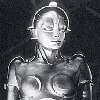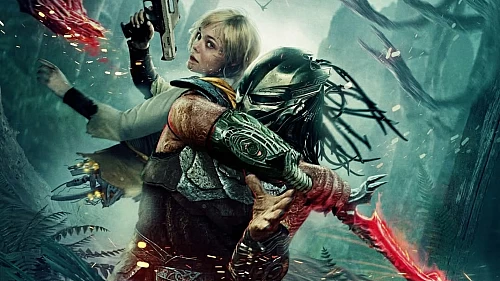Do Androids Dream of Electric Sheep? (Synopsis)
Blade Runner Fiction Forum Topic

Svanya
Admin2KSep 25, 20124244 Views1 Replies[Center]~Setting~[/Center]
Do Androids Dream of Electric Sheep? is a science fiction novel by American writer Philip K. Dick. First published in 1968, the book served as the primary basis for the 1982 film Blade Runner. The novel is set in a post-apocalyptic near future, where Earth and its populations have been damaged greatly by nuclear war during World War Terminus. Most types of animals are endangered or extinct due to extreme radiation poisoning from the war. To own an animal is a sign of status, but what is emphasized more is the empathic emotions humans experience towards an animal.
The main plot follows Rick Deckard, a bounty hunter who is faced with "retiring" six escaped Nexus-6 brain model androids, the latest and most advanced model, while a secondary plot follows John Isidore, a man of sub-normal intelligence who aids the fugitive androids. In connection with Deckard's mission, the novel explores the issue of what it is to be human. Unlike humans, the androids possess no empathic sense. In essence, Deckard probes the existence of defining qualities that separate humans from androids.
[Center]~Plot summary~[/Center]
The novel follows bounty hunter Rick Deckard through one day of his life, January 3, 1992, as he tracks down renegade androids who have assumed human identities.
Deckard seldom works in and does not consider himself to be either a peace officer or a full-time bounty hunter, as the entire Northern California area is the territory of the district's senior bounty hunter, Dave Holden. Deckard accepts, using his notes, the very few left-over cases that Holden either does not want or does not have the time to pursue. He comes to learn that Holden is across the bay inside a hospital in San Francisco receiving a plastic spinal cord due to an earlier attack by an android that almost killed him. Deckard, who only considers himself to be a part-time relief worker to the senior bounty hunter, is given his notes by the police chief but is still reluctant to work in Holden's territory. On the other hand, he is attempting to acquire the funds for a real black-faced Suffolk ewe — the only jobs being sanitation work for garbage trucks to clean up the "kipple" left behind by the human population who have migrated off-world. He decides to pursue Holden's notes based solely on the accumulative pay-off of each android, in relation to the price towards the purchase of a head of sheep in Sydney's Animal & Fowl Catalogue January supplement. Deckard, himself, suspects that he will succumb to and die of radiation poisoning in a few months, anyway, and that a specimen of livestock would contribute to the world in a gesture of empathy and that an animal may outlive him.
The novel begins with Deckard feeling alienated from his bed-ridden wife, Iran, who, he feels, is misusing her mood organ by dialing inappropriate moods, like depression. After an encounter with his neighbor, Bill Barbour, on the building's rooftop where the flying cars and penned robotic animals are, about Deckard not being able to afford a real or artificial animal, he realizes that, in order to obtain any meaning, he must acquire one.
He travels by flying car, alone, from San Francisco to Rosen Industries in Seattle, Washington, in order to test the validity of the new empathy test on the android-type's new nervous system/brain the Nexus 6. Having landed on the roof of Rosen Industries once in Seattle, Deckard interviews Rachael and performs an empathy test on her, which she fails. Rosen Industries then explains that Rachael is, indeed, human, but she lacks normal empathy due to her youth being raised on a spaceship that was attempting to colonize the star Proxima before turning back. After Rachael attempts to bribe Deckard with a supposedly real owl, Deckard asks her one last question and verifies that she is, indeed, an android and Rosen Industries was trying to discredit the empathy test. The company then admits that Rachael had false memories implanted in her and she is not conscious to her state as being an android. However, it is later implied this was also a ruse and that Rachael not only knew that she is an android, but was used by the corporation to protect other androids targeted by bounty hunters, mostly through sexual favors.
Deckard becomes confused about humanity, morality and empathy after attempting to retire an android opera singer. He is arrested and taken to what appears to be a fully functional and publicly accessible police station—but it is not a police station Deckard knows about. Deckard is accused of being an android with false memories. Deckard escapes with fellow bounty hunter Phil Resch after deducing that the station is staffed by androids. His moral quandary deepens after working briefly with Phil Resch, who Deckard first believes is an android but then learns is a particularly callous fellow human bounty hunter.
Deckard's story is interwoven with that of J.R. Isidore (a surname Dick also used in Confessions of a Crap Artist), a "special" (i.e. genetically-damaged) driver for an animal repair shop who cannot qualify to leave Earth due to his "special" status. Isidore, who has a low I.Q. due to the radioactive dust-induced genetic damage, is a "chickenhead" who lives alone in an entirely empty apartment building with little outside contact other than his Empathy Box. Pris Stratton, a twin android identical to Rachael Rosen, moves into the building and the lonely Isidore attempts to befriend her. Pris and her friends get Isidore to help them trap Deckard as he comes to retire them. Once Deckard realizes the size of the challenge ahead, he enlists Rachael to help him, and they proceed to have sexual relations. By Deckard's having relations with her, Rachael hoped to stop him from bounty hunting. After Deckard confesses his love for Rachael, the empathy-less Rachael then reveals that she has slept with multiple bounty hunters and was able to get all of them to stop bounty hunting except Phil Resch. Deckard almost "retires" Rachael, but then tells her to return to Rosen Industries.
Deckard then confronts the androids alone and succeeds in killing them, causing Isidore to break down from the loss of his only friends, and earning Deckard a citation for a near-record number of kills in one day. He returns home and his wife reports having seen Rachael Rosen kill his real pet goat. He understands that Rachael was taking revenge and is thankful that the loss is only financial; the android could instead have killed his wife.
He travels by car up the highway to an isolated sand dunes area in the state of Oregon to meditate and has an epiphany. He also finds a toad, thought to be extinct and considered to be Mercer (the supposed Messiah)'s favorite animal. Deckard brings it home, where his wife discovers that the toad is in fact synthetic. While Deckard is not glad, he 'prefers' to know that the toad—after all—is artificial.
[Center]~~~~END~~~~[/Center]
~[url=http://www.technovelgy.com/ct/content.asp?Bnum=124]Mood Organ (explained)[/url]
~[url=http://www.technovelgy.com/ct/content.asp?Bnum=129]Empathy Box(explained)[/url]
[Center][IMG]http://i48.tinypic.com/2wqrask.png[/IMG][/Center]
Bishop is Bae <3


